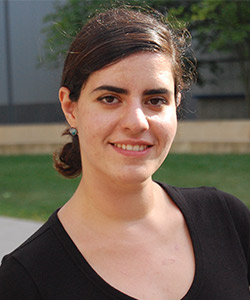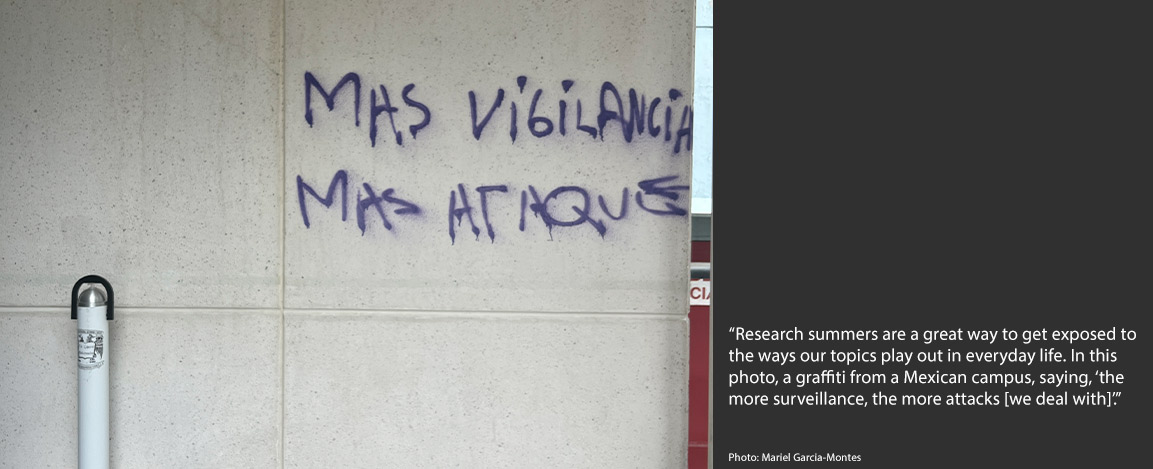The CIS Summer Study Fellowship competition is open to advanced doctoral students in international affairs at MIT, regardless of their home department. One of this year's winners reflects on her summer abroad.

Mariel Garcia-Montes is a PhD student in the Program in History, Anthropology, Science, Technology and Society (HASTS).
Each year, the MIT Center for International Studies grants Summer Study Fellowship awards to advanced doctoral students to support summer dissertation research on a broad range of international issues. The Fellowship is open at all students in international affairs at MIT, regardless of their home department. This summer, fifteen doctoral students were awarded summer study grants of up to $4,000 each.
One of the recipients, Mariel Garcia-Montes, a PhD candidate in the doctoral program in History, Anthropology, Science, Technology and Society (HASTS), sat down to discuss her project, entitled “Birds on the Wire: The Sociotechnical Dimensions of Mexico’s Surveillance Culture.” In addition to the Summer Study Fellowship, Garcia-Montes was also one of the two recipients of this year's Jeanne Guillemin Prize, which provides support to women studying international affairs.
Can you tell us a bit about your research project?
This summer, I did on-site research for my dissertation project on surveillance in Mexico. I spent a lot of time at the National Archive of Mexico, looking through documents from the 1940s to the 1960s that give us a sense of the intelligence operations that took place in the Mexican government at that time. Something kind of incredible about studying surveillance at that archive is that it is housed at the former Lecumberri prison, which is a Panopticon-style prison in Mexico. The architecture leads to a sense of being watched while you study the watching that took place against dissidents.
What are you trying to accomplish with your research?
What I’m trying to accomplish is an account of electronic surveillance in Mexico today: the actors and forces shaping the systems deployed, the ways it all builds on the history of political surveillance in the country, and the lessons it teaches us about technology in Latin America (and about surveillance worldwide).
What was the value of being able to do on-site research in Mexico?
Something invaluable about doing on-site research this summer as an MIT student was the opportunity to complement the classes and readings done in Cambridge with the lived experience of experts on the ground, as well as with historical materials of immense importance that can only be accessed in-person. I am grateful to the Center for International Studies and to Jeanne Guillemin’s legacy for supporting my research, which will hopefully culminate in a doctoral dissertation in the next couple of years.



